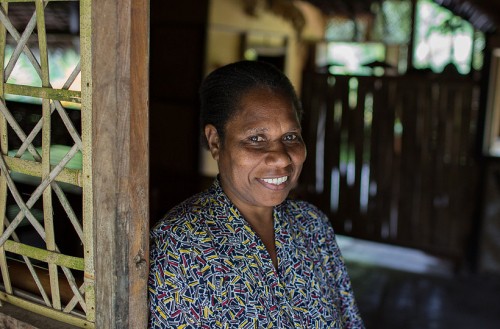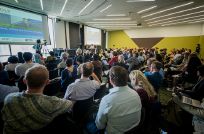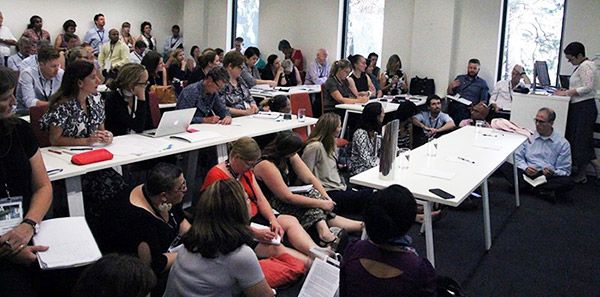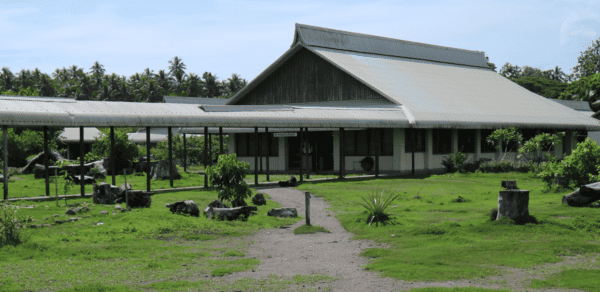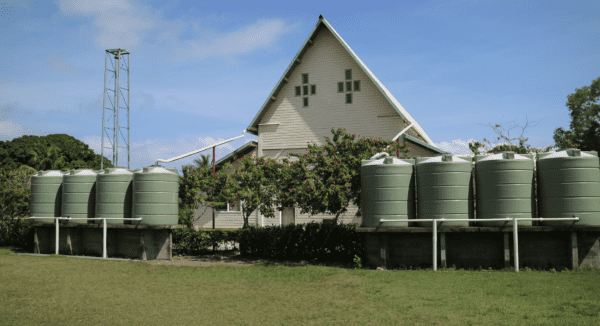Image: A business owner, Vanuatu (Connor Ashleigh / AusAID).
Last week was a big one for the Australasian development community, particularly for those interested in the politics of development. The Australasian Aid Conference at the Australian National University (10-11 February) included a packed session on ‘Putting political thinking into development practice’. And DLP’s Annual Conference at La Trobe University focused on Power, Politics and Positive Deviance.
For those who listened closely, in between the boilerplates of government policy there were genuinely exciting possibilities in Peter Varghese’s opening address at the AAC. He outlined a vision of effective development work as “art, rather than science”. He also emphasised the importance of taking an approach that is deeply rooted in the local political context. Which is why it was so good to hear him peel back the technological veneer of innovation debates, highlighting the role of programming innovation.
So what does thinking about politics and risk in a different way entail? We took three things away from the week’s events.
1. Learn better from the politically informed work already happening
Initiatives that are locally owned and driven, tailored to context and that take issues of power and politics into account are already making a real difference in our region, and in Indigenous Australia.
We need to learn more and learn better from ongoing practice. And we need to recognise that these initiatives are often driven by individuals, organisations or coalitions who use unusual or unorthodox strategies in pursuit of their goals. They sometimes bend or break the rules or, at the very least, play games within the rules. Poor and marginalised groups often use distinctive political strategies that are shaped by the constraints and risks they face.
International support can assist these processes, but too often it can depoliticise locally driven action, or even provoke backlash and increase the risks faced by less powerful groups.
2. Use analysis tools on ourselves to help adapt our organisational systems and cultures
It was also clear that when practitioners in development agencies try to work more flexibly and politically to support such programs better, they often come up against bureaucratic and administrative hurdles. This has been well documented by a number of authors. Obstacles arise from the political economy in which aid organisations find themselves – sensitivity to foreign political interventionism is one example that Carothers and de Gramont note. And obstacles also arise from internal power relations. So as we use the tools of political, gender and power analysis, we need to remember to look inwards as well as outwards. If we want agencies and other organisations to experiment and take more judicious, considered risks, we need to encourage this process.
3. Make the story about shared goals, not foreign aid
Finally, it is important to shift the focus of the development sector’s main narrative from foreign assistance to the universality promoted by the Sustainable Development Goals. As Richard Moore, the Former Deputy Director General, AusAID, put it, “there are two things wrong with the term ‘Foreign Aid’: ‘Foreign’ and ‘Aid’.” We need to make clear that, if we are to survive as a species, international cooperation must enable us to learn together about how we can collectively address the common problems we face.
To develop this alternative story, we can build on a range of current research into public attitudes that is challenging conventional wisdom. As we do so, we will need to recognise the importance of politics and politicians as well as the importance of ideas in shifting norms and policies.

